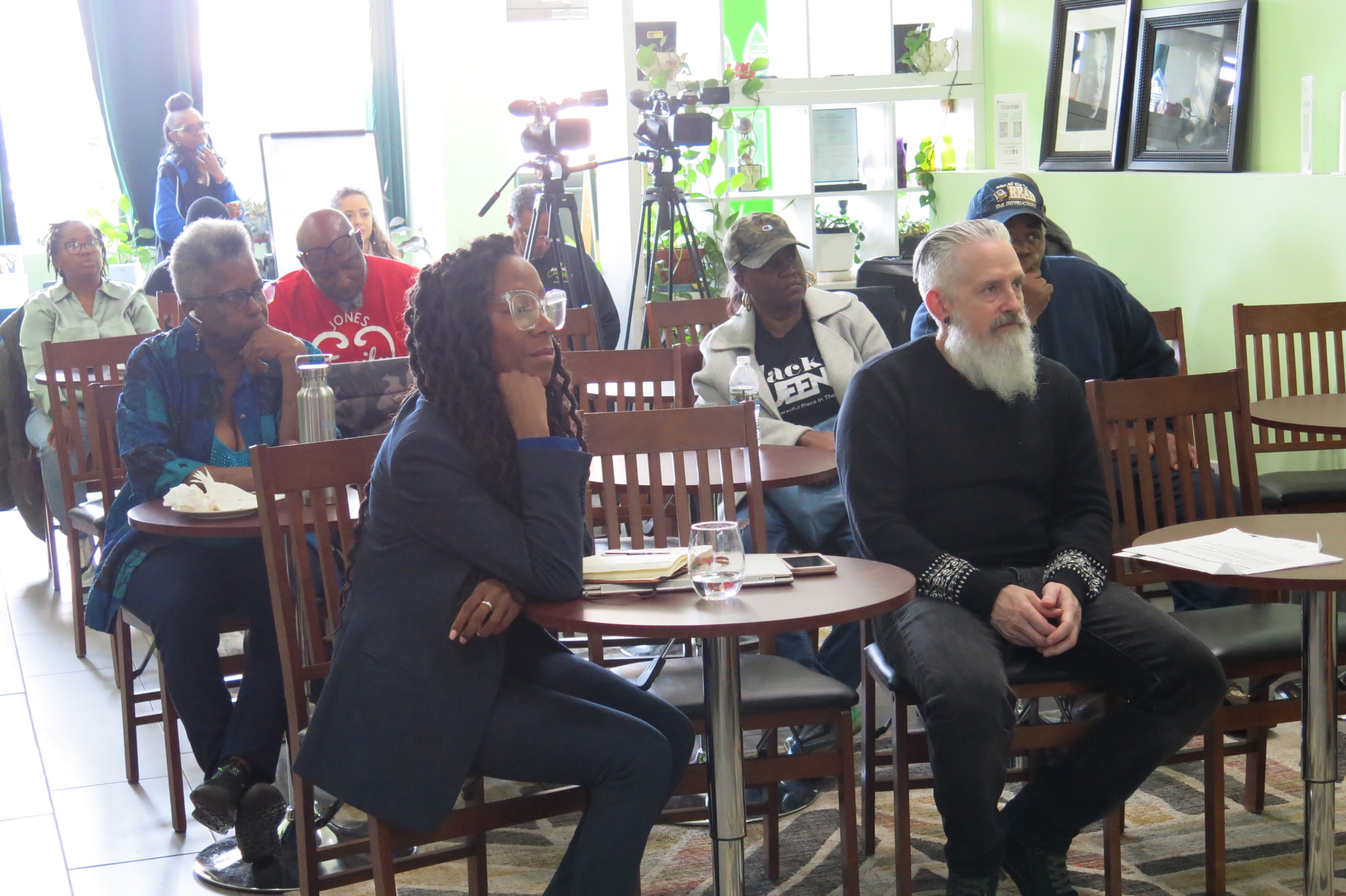Host Your Own Water Workshop

The cost of drinking water service is going up. In northeastern Illinois, the average water rate grew almost 80% between 2008 and 2018. Meanwhile, household income has not kept pace, particularly working class wages—which remained essentially stagnant over the same period. As a result, a growing number of households are struggling with water affordability in our region.
Elevate also found this trend in Chicago. The city’s lowest income residents, in particular, are paying significant percentages of their income on water bills, well over the commonly cited affordability thresholds. And this is an equity issue, too. Account holders in majority Black, Latinx, and Asian parts of the city are paying, on average, a higher percentage of household income on water bills than in majority white areas.
Elevate has partnered with municipalities to explore and advance systemic solutions. In the meantime, what can people who can’t afford their water bill do?
Hosting a water workshop
While municipal policies and procedures adapt to changing realities of water affordability, Elevate has been hosting water workshops in partnership with community organizations and other partners. The workshops provide an overview of water affordability, connect residents with available resources to address affordability challenges, and provide tips on how to save on water costs at home.
Do you want to share this information with your audience? This blog provides resources and important considerations to help you host your own water workshop!
What is it? You’ve heard of meetings-in-a-box? Well, this is a meeting-in-a-blog—an engagement strategy with resources, information, and a train-the-trainer guide to help you talk to your audience about water affordability challenges and potential solutions.
Who is this for? This guide is designed for workshops hosted by block clubs, community groups, neighborhood associations, and friends. While the resources are geared towards a Chicago audience, the information can be adapted for other communities.
What is the format? Over the past two years, Elevate and our partners have hosted water workshops of varying length and at different venues. Examples include a 2-hour in-person meeting, a hybrid in-person and online meeting, a short presentation as part of a longer event, and a 5-minute recorded interview for YouTube.
How much work is required? A standalone event focused on water affordability will require planning and prep work to identify speakers, prepare presentations, and develop promotional materials. Although this type of event requires significant effort, it allows for in-depth conversation on important issues and solutions. Elevate has also seen success pairing shorter presentations with other topics and presenting at standing meetings or preexisting events. Some of the topics we’ve paired water affordability presentations with include lead in water, rental and other utility assistance, clean energy opportunities, workforce development, CPR training, and more!
Are there other considerations? Discussion questions, handouts, venue, refreshments, and audio-visual equipment are all important factors to consider when planning your event. Also keep your audience in mind: What topics do they need to hear about? What will get them into the room? What is needed to ensure the event is a success?
Workshop Resources
To help you host a successful water workshop, included below are resources that can be used as-is, edited to be suitable for your audience, or repurposed to meet your needs. For example, just add your name and the date to the template slide deck, and you’re ready to present! Or pick and choose relevant slides, change the design to match your organization’s theme, whatever you need.
- Template water workshop agenda and facilitator guide (Download)
- Template water affordability slides with speaker notes (Download)
- Template workshop promotional poster (Download)
- Informational fact sheet on water affordability
- Educational resources for facilitators
- Link to past Water Debt Workshop
Again, these resources were developed for Chicago homeowners and renters, but the information can be adapted for other audiences.
After the Workshop
Don’t forget to follow-up with attendees after the event to provide additional assistance to households struggling with water affordability. A post-workshop survey, email, or phone call can help you identify participants who need more help. Follow up to connect participants with resources based on the local context:
- Does your municipal drinking water utility offer payment plans?
- Does your municipal drinking water utility have an affordable rate structure?
- What additional resources are available if someone can’t afford their water bills? For example, township General Assistance programs and the Salvation Army may have resources to assist with utility bills.
- What documentation is required for assistance programs, and how does it need to be submitted? This type of assistance may be particularly useful to individuals without reliable Internet access or who have limited digital literacy.
Contact Elevate for more information or with questions. Also, we’d love your feedback: Were these resources helpful? Do you need additional materials? How can we help?



